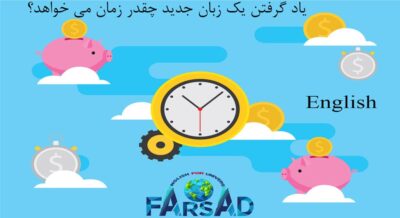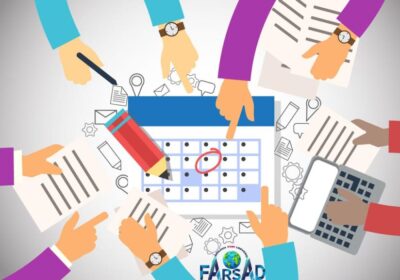How long does it take to learn a new language e.g. English?
The answer to this question (how long does it take to learn a new language, whether English or any other) is not very simple, but in this article, we will try to answer this question by using detailed research on foreign language learning. To get to know about the strategies necessary for an effective conversation, it is recommended to read “Six Practical Strategies for Effective English Conversation“.
The degree of difficulty of any language
It should be noted first that the hardness of all foreign languages is not the same. So the time needed to learn them will not be the same. The harder a language is, the more time it takes your brain to learn the details and how to use it. According to upbringing, everyone might had the chance to learn a language up to some basics as we, Iranians, start to learn English and Arabic. Here I put languages into four categories according to my personal experience of learning languages:
First class – English, Arabic
Second category – French, Spanish, Italian, Portuguese
Third category – Russian, German
Fourth category – Chinese, Japanese
Of course this rating is designed for Farsi speakers since students are made to learn both English and Arabic as two school subjects in their compulsory education. So, If their native language is not Farsi, it will surely be different for them. (If you are curious about how this grading is done you can read this article).
The amount of fluency in each language
Learning a language is a relative issue, so we can’t figure out exactly when we learned a language. Of course, frameworks such as CEFR have been developed to standardize training. In the research we used to write this article, FSI has divided language proficiency into five categories:
- Elemental Mastery: That is, the person is familiar with the basic terms and can fulfill his / her needs for example on a journey (shopping, hotel booking, etc.).
Pre-intermediate mastery: That is, one can interact with others at an early stage, talk to one person, and make statements about their interests and needs.
Moderate fluency: That is, the person has some degree of proficiency in the language that can meet most of his / her needs in this language, engage in complex discussions with others, and achieve his / her purpose.
Advanced fluency: It means that one can speak this language fluently and even in specialized situations.
Mother tongue or similar mastery: The individual is fluent in the same language as a native.
How long does it take to learn?
FSI research shows that reasonable time to learn the languages of the first category (English and Arabic) will be at least 480 hours to reach pre-intermediate levels. This means, for example, reading a language for 4 hours a day will take about 3 months to reach a pre-intermediate level. For the third category of languages, it takes 720 hours.
Achieving advanced proficiency in first-class languages (English and Arabic) will require approximately 1,400 hours of practice. That is a relatively long time. Note, however, that this research was conducted by averaging the learning time for a large range of individuals. So this time may be more or less for you.
Does everyone practice that much to learn, no matter English or another?
Actually yes. Keep in mind that when a child spends time learning a language, it is much more than that. Assuming an acceptable language learning age of 4 years (up to this age children are very young.) A child has a total of about 12,000 hours of language learning from birth. Naturally, if you live in a foreign country, your normal life can also become part of your learning process. This greatly increases your daily learning hours. It is said in TV advertising that we learn a language for 10 minutes a day!
You can naturally learn every language with ten minutes of daily practice, but you will need approximately eight years to reach the pre-intermediate level. Remember that the easiest way is not always the best.
How much do we study daily?

If you are serious about learning a language, try two things in your learning process:
Increase Learning Continuity: Try to keep your learning process going. With cross-learning, you will never be able to learn your preferred language, mine is English, at an acceptable level. To learn better, take some time each day to learn.
Choose an average time for daily learning: Your brain needs some warm-up time to learn. After this time the brain goes into active learning mode. After a while, the brain gets tired and goes to rest. You should try to choose the learning intervals according to your ability so that there is enough time to warm up your mind and not too long. Half an hour to an hour daily is usually recommended for learning a simple language
The abstract of the article:
In this article, we answer the question of how long it takes to learn a new language and also discuss some of the essentials. You can also read this article “How Long Does It Take To Learn A Language?“.
For further studies:
1- How to read English texts quickly?


 فارسی
فارسی
